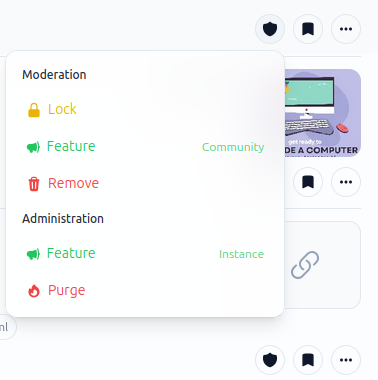- 561 Posts
- 183 Comments
Thanks for the heads up and continued development. Good luck with the porting.

 4·23 days ago
4·23 days agoOld School Runescape.

 23·26 days ago
23·26 days agoThis one hurts… as I use this as my password manager on mobile :{

 156·2 months ago
156·2 months agoI think the “Ubuntu Core 22” means it is the snap based version of Steam rather than the deb version.
If you look at the snapcraft.yaml for the Steam snap, it uses
core22as its base.

 91·2 months ago
91·2 months agoLooks like a number of patches are landing in Ubuntu to address this: https://bugs.launchpad.net/ubuntu/+source/cups/+bug/2082335
Update: CUPS Remote Code Execution Vulnerability Fix Available

 63·2 months ago
63·2 months agoThis is a great summary. Thanks!

 19·2 months ago
19·2 months agoIt looks like you are running XFCE instead of GNOME (the normal Ubuntu desktop). I’m not sure how that happened… but you an always just install another desktop.
For instance, you can try to make sure you have the
ubuntu-desktoporubuntu-desktop-minimalmetapackage installed:sudo apt install ubuntu-desktop-minimalAfter that, the login manager should allow you to select the Ubuntu session rather than the XFCE one.

 4·2 months ago
4·2 months agoYes, based on the diagrams on their blog, it looks like this only impacts Snaps.

 12·2 months ago
12·2 months agoFrom the Discourse Blog:
The Linux desktop provides XDG Desktop Portals as a standardised way for applications to access resources that are outside of the sandbox. Applications that have been updated to use XDG Desktop Portals will continue to use them. Prompting is not intended to replace XDG Desktop Portals but to complement them by providing the desktop an alternative way to ask the user for permission. Either when an application has not been updated to use XDG Desktop Portals, or when it makes access requests not covered by XDG Desktop Portals.
Since prompting works at the syscall level, it does not require an application’s awareness or cooperation to work and extends the set of applications that can be run inside of a sandbox, allowing for a safer desktop. It is designed to enable desktop applications to take full advantage of snap packaging that might otherwise require classic confinement.
So this looks like it complements and not replaces the XDG Desktop Portals, especially for applications that have not implemented the Portals. It allows you to still run those applications in confinement while providing some more granular access controls.

 1·2 months ago
1·2 months agoAs a moderator, you should see a “shield” on a post and from that sub-menu, you can choose to feature or unfeature a post:


 4·2 months ago
4·2 months agoI used to use VLC for music, but these days I use Symphony to play local files on my phone. VLC tended to struggle when scanning or indexing large folders (which it did all the time…), while Symphony is a bit better at that. That said, I still use VLC for video and for casting things from my DLNA server (VLC supports Chromecast).
For ebooks, I’ve used Librera FD and that has been mostly OK. I’ll checkout the two you mentioned though. Thanks!

 18·2 months ago
18·2 months agoI think you meant Pop!_OS (is developed by System76). TuxedoOS is developed by Tuxedo Computers, which is a European Linux focused hardware company.
That said, the point stands… there are hardware companies making Linux supported devices.
 1·2 months ago
1·2 months agoFor a simple IRC web client, I would also add Gamja, which I self-host along side with the Lounge (mentioned in the article) for a few users.
That said, my primary client is WeeChat and WeeChat-Android.

 31·3 months ago
31·3 months agoI think the WINE project was maintaining a fork of Mono that was used to support running certain Windows applications:
So in addition to translating traditional WIN32 system calls, WINE also supports .NET applications, which a number of Windows programs require.

 5·3 months ago
5·3 months agoDepends on your perspective, I guess. To me, GNOME is now pretty mature, stable, and reliable. That is one of the reasons why I left Pop-shell for a more vanilla GNOME experience.
COSMIC has a lot of hype right now, but based on my experience (and others), it is not at all stable or ready as daily driver. That is not to say it isn’t exciting but at this point in time I value stability and being able to just use my computer and GNOME provides that.
As the Linux luddites used to say, not all change is progress :)

 10·3 months ago
10·3 months agoCoincidentally, I received a firmware (EFI) update from Dell today via LVFS. Really nice that it works so smoothly on native Linux (no more manually downloading firmware to USB drives, or relying on Windows).

 37·3 months ago
37·3 months agoThe reasons for this shift in budget away from funding Free Software and the NGI initiative seems to be an allocation of more funds for AI, leaving internet infrastructure by the wayside. Meanwhile, the EC has thus far declined to comment to share its official reasoning for striking this funding from its budget.
Sigh. It appears that they are chasing after the latest “shiny” thing instead of investing in existing infrastructure. Not surprising, but disappointing.

 8·3 months ago
8·3 months agoPretty happy that we opted out of the Slack AI “feature” at work.







Over the course of the last 20 years, I’ve gone from Arch -> Void -> Pop!_OS -> Ubuntu, and that is what I use on all my machines (laptops, desktops, servers).